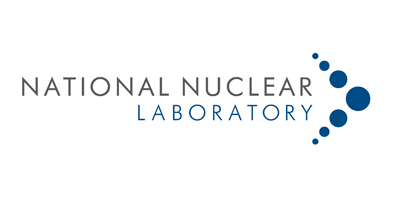AFCP unites for third virtual event
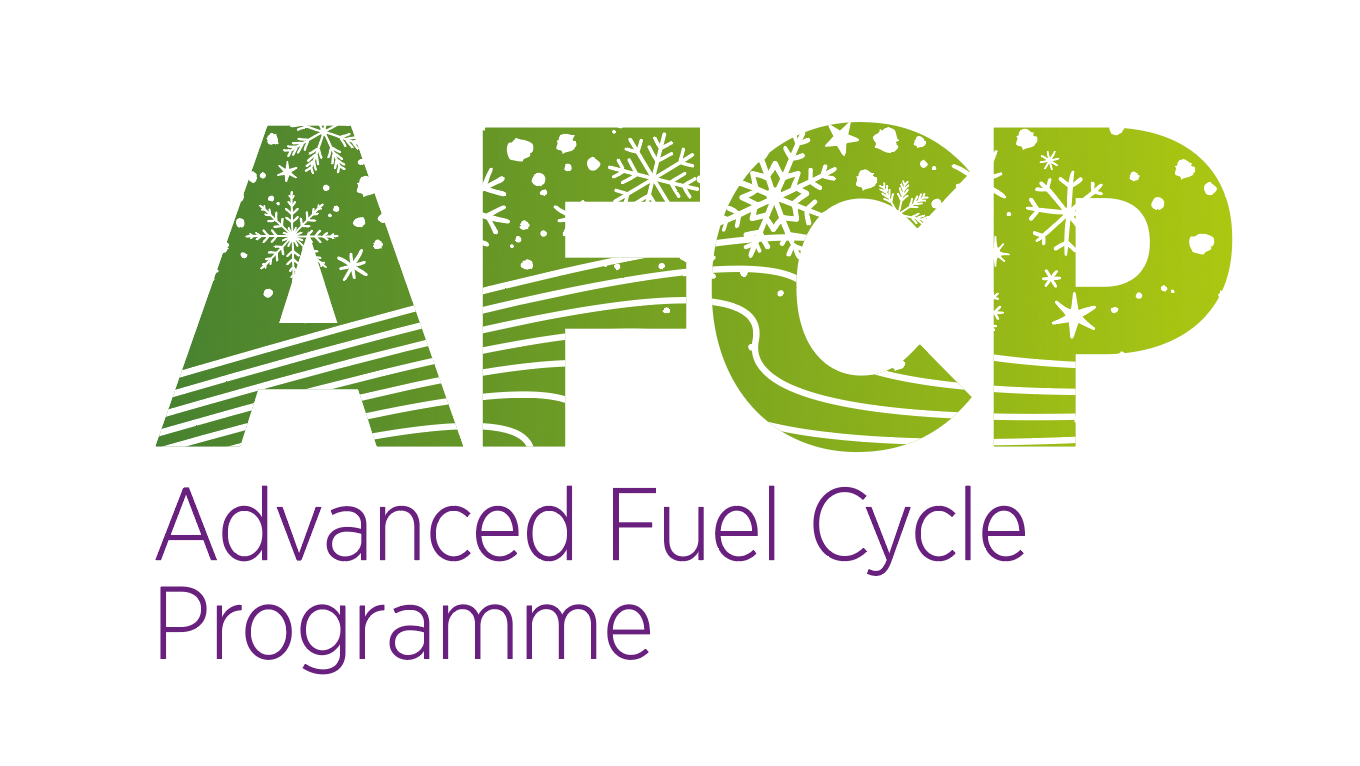
This week, the Advanced Fuel Cycle Programme (AFCP) hosted its third virtual Quarterly Technical Meeting (QTM). Reviewing programme achievements and looking ahead to the future, the ambitious event fittingly rounded off AFCP’s highly impactful calendar year.
With over 200 registrations, December’s QTM marked the largest virtual gathering of AFCP members and stakeholders of the year. Spanning the National Nuclear Laboratory (NNL), academic institutions, small to medium enterprises, international businesses, government, regulatory bodies and even partners from across the pond, the QTM emphasised the value of collaborative, integrated innovation to achieve Net Zero.
Reflecting on a year to remember
Over the course of two days, each of AFCP’s technical projects recapped recent highlights and illustrated the impact of their work for the UK’s clean energy future. We heard from a whopping 29 technical presentations at this QTM – only scratching the surface of the work underway across the programme.
With technical projects representing the whole fuel cycle and speakers spanning AFCP’s cross-sector consortium, the themes of collaboration and integration surfaced throughout the QTM. Through Q&A discussions between complementary projects, AFCP members captured why a team is needed to strategically deliver large-scale innovation, achieve an advanced fuel cycle and support a Net Zero future. Despite the challenges faced throughout 2020, AFCP teams displayed true dedication and passion for their projects and partnerships, which came to light in their presentations, reflections and engagement at the event.
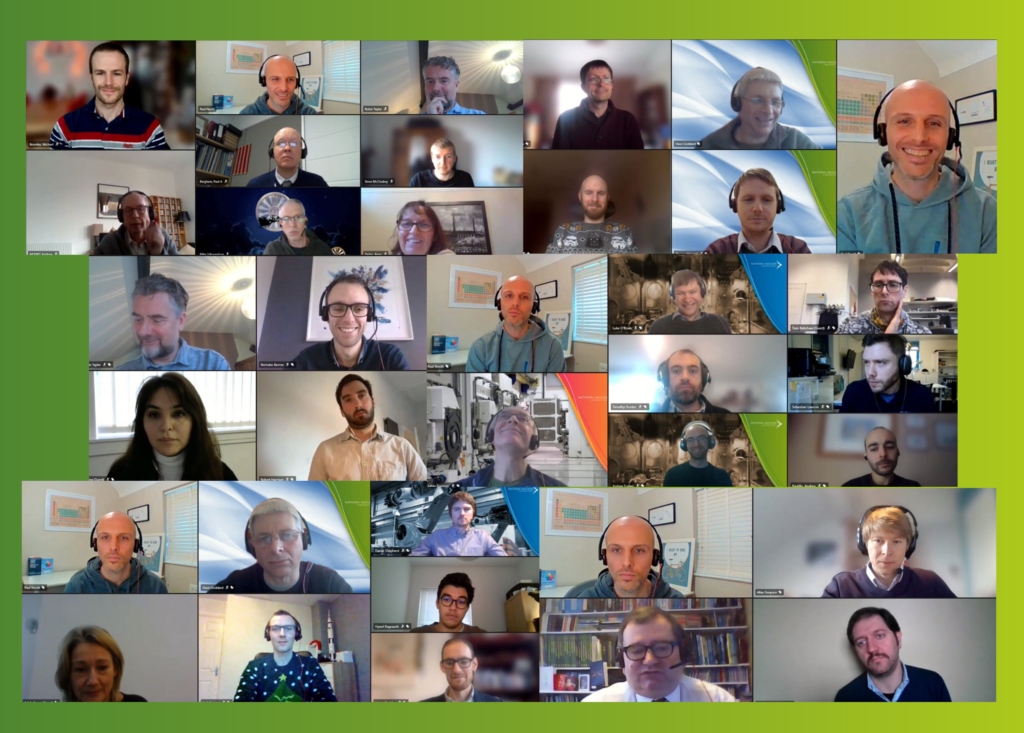
Bridging these standout themes came presentations from AFCP’s innovation and communications areas. NNL’s Tim Whitworth, head of innovation for the programme, announced that AFCP has launched a new Game Changers challenge. The announcement marks an exciting addition to AFCP’s collaborative network, enabling the programme to strengthen its existing capability through onboarding new ideas and problem-solving potential.
AFCP Communications Manager, NNL’s Meredith Sherock, discussed the value of capturing, translating and disseminating AFCP’s technical achievements across the programme’s diverse range of stakeholders. AFCP members can access communications and engagement resources – including storytelling templates, downloadable AFCP-branded materials and writing tips and tricks – on the Co-Creation Community.
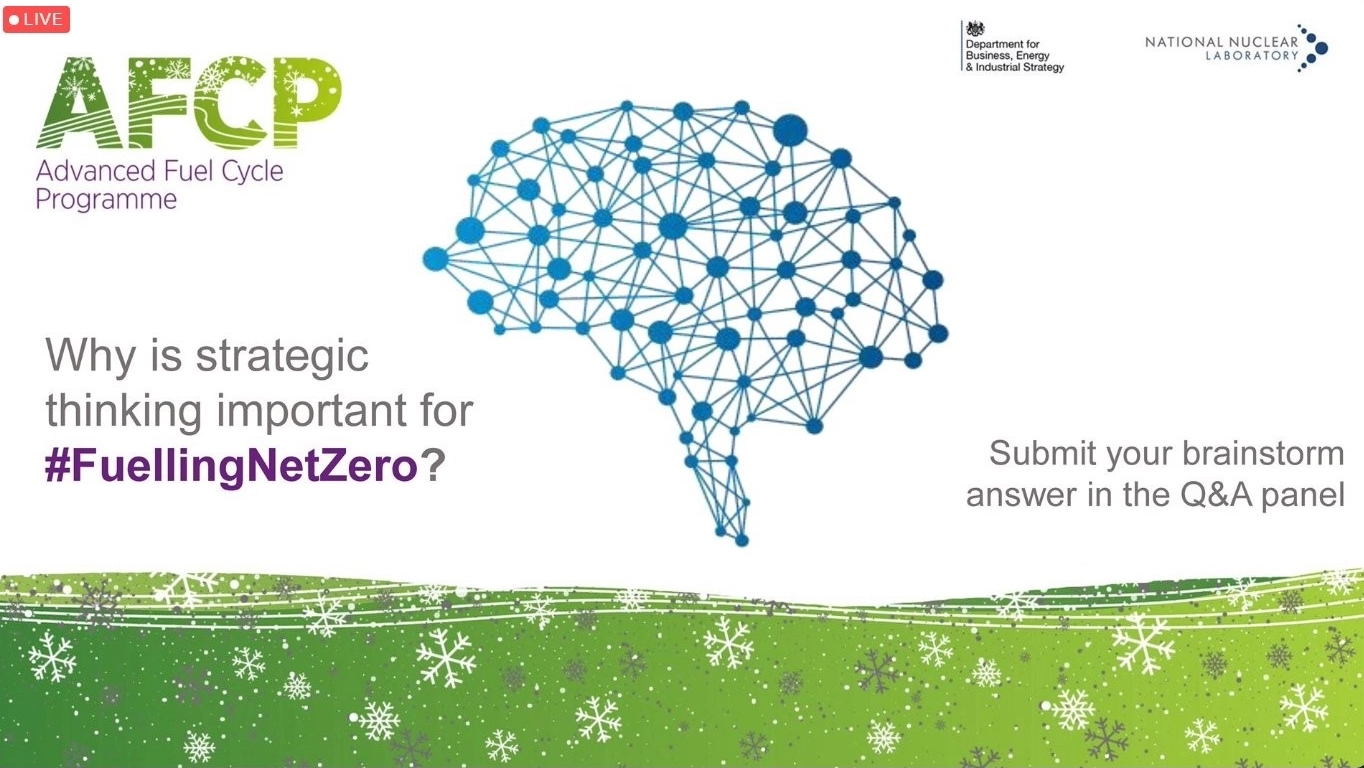
Rising to the challenge to fuel Net Zero
The last QTM unveiled a new challenge for AFCP members – summarise the Net Zero impact of their work in two minutes or less. This QTM, 21 AFCP members stepped up to deliver impact-driven pitches.
Ranging from in-depth technical soundbites through to stories of community engagement, university collaboration and laboratory capability, the QTM pitches gave a whistle-stop tour of how AFCP is delivering massive change for the UK nuclear sector and beyond.
Congratulations to three pitches in particular – Alfie O’Neill from NNL, Rebecca Lindsey-Halls from NNL and nucleargraduates and Catriona McFarlan from Strathclyde University – which were voted the most popular pitches by the QTM crowd.
Alfie’s pitch took a highly imaginative approach to nuclear data communication. In an animated video, he concisely explained AFCP’s criticality benchmark assessment workstream. With an emphasis on skill building and international engagement, Alfie impressed the QTM audience with his visually driven storytelling and creative flair. A well-deserved win for the new reigning AFCP pitch champion!
Catriona, as one of two runner-ups, continued the nuclear data theme in her process monitoring pitch. In her presentation, Catriona explained how AFCP’s nuclear data project is developing processes to enable next-generation nuclear fuel reprocessing. Her pitch clearly demonstrated the future-focused innovation at the centre of AFCP.
As the second joint runner-up, Rebecca’s pitch portrayed the societal impact of fast reactor fuel engagement. Following Rebecca’s journey through STEM engagement initiatives, tutoring at underprivileged schools and creating educational resources for the IAEA Collaborating Centre on advanced fuel cycle, her pitch expressed the importance of paving new pathways for next-generation nuclear innovators.
Inspiring leadership and affirming recognition
AFCP was honoured to host two panel sessions with nuclear sector leaders. On day one, Andrew Worrall from Oak Ridge National Laboratory (ORNL), Amparo Gonzalez Espartero from International Atomic Energy Agency (IAEA), Kirsty Gogan from Lucid Catalyst and Energy for Humanity, Damitha Adikaari from AFCP’s Government funding body the Department for Business, Energy and Industrial Strategy (BEIS) and Diego Lisbona from the Office for Nuclear Regulation (ONR) joined a panel to discuss the future direction of UK nuclear innovation on a global stage. Centred around the power of multidisciplinary collaboration, the panel emphasised the urgency to act now to steer climate change action. The momentum carried through AFCP, they reflected, is helping to unify the voice of nuclear as part of the UK’s action plan.
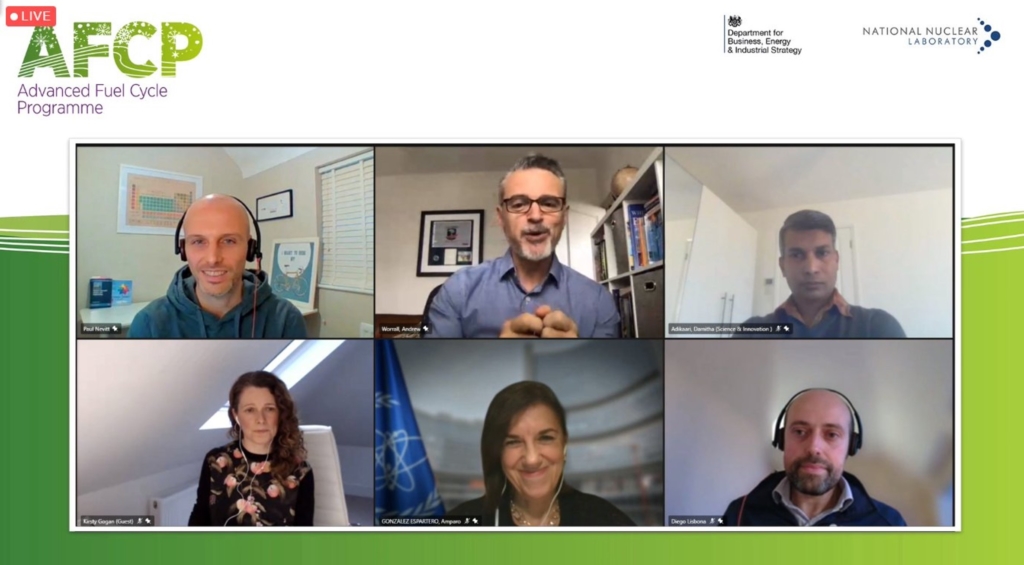
In the second QTM panel, AFCP welcomed NNL CEO Paul Howarth, Dame Sue Ion and Mike Tynan, Chair of the Nuclear Innovation and Research Advisory Board (NIRAB). They led an insightful discussion on the role of strategic planning to support Net Zero ambition. Through ongoing, future-focused programmes such as AFCP, the UK can position itself to prepare for and deploy emerging technologies. In bridging fuels and sustainable recycle capabilities of the future, AFCP is proud to contribute to this forward-thinking ambition.
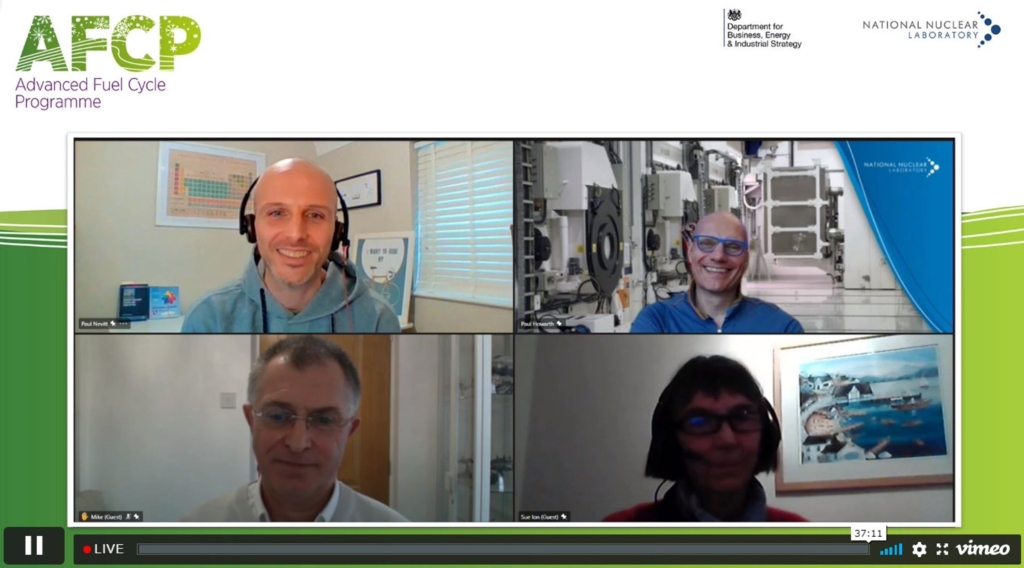
Looking ahead to a clean energy future
AFCP would like to thank everyone involved with presenting, attending and organising the event. Special shout out to Paul Nevitt, AFCP Technical Director, for chairing the QTM and strengthening engagement across the programme.
We’re immensely proud of the passion, dedication and innovation displayed over the past quarter through this challenging year. Here’s to what’s ahead as AFCP continues Fuelling Net Zero into 2021!
